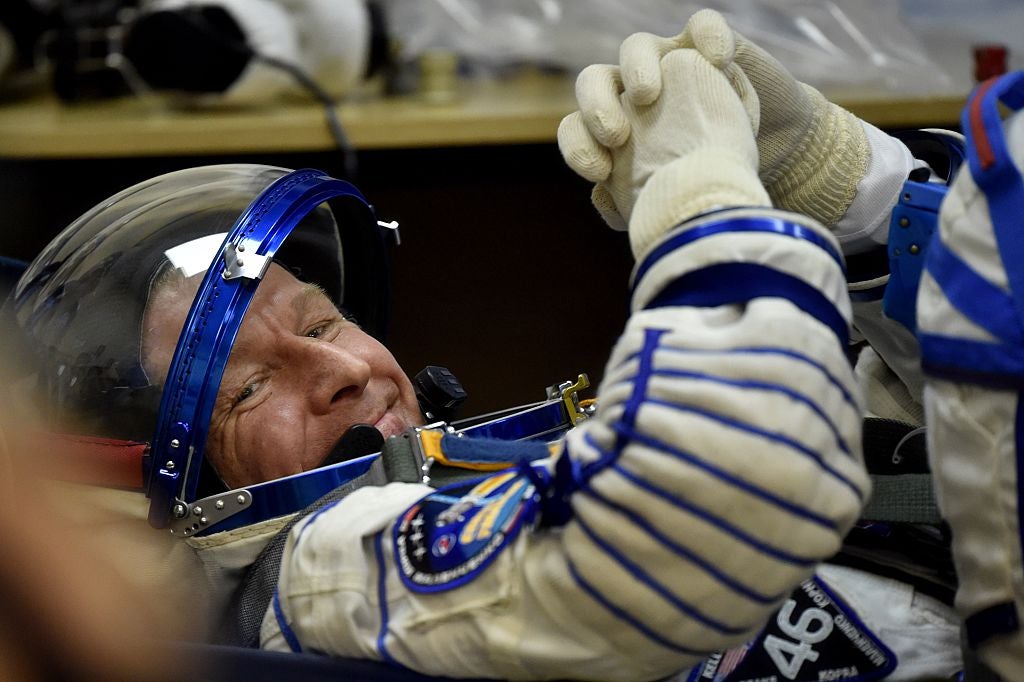What I learnt about lockdown from the International Space Station
Three lockdowns have taken their toll on the young, but local volunteers are helping to combat loneliness and ease other strains by meeting virtually, having fun and sharing skills


It’s probably fair to say that I’ve had more experience than most when it comes to preparing for life in lockdown. Living in a confined space with limited human contact pretty much describes my six months aboard the International Space Station. My outdoor exercise was limited to a four-and-three-quarter-hour spacewalk to replace a failed power regulator.
But three lockdowns is a lot for any of us to handle. And for young people these times have been especially tough. Humans are naturally gregarious creatures and being separated from each other for extended periods of time takes its toll. A whole generation has had to cope not just with homeschooling, but missing out on all those other activities that make growing up so special and such an important time for young people’s development.
That’s where our brilliant youth movements have come in. Switching to Zoom when they couldn’t meet face to face, local volunteers have really risen to the challenge, supporting young people’s mental wellbeing. Across the UK, for example, Scout leaders have adapted to delivering socially distanced activities, so many of which are now online. We can’t underestimate what a huge change that’s been in the way they do things. We’ve asked a lot of our volunteers and they’ve delivered every time.
Scouts alone have now clocked up an astonishing 1.2 million hours of Zoom calls, which have kept our young people connected and learning skills for life. Often, it’s the only time when young people have been able to see other people of their own age. One mum said it’s the only time she hears her son laugh during the week.
When we know that young people’s mental wellbeing is suffering, this is not just important but essential. According to a YouGov poll commissioned by Scouts, nearly two-thirds (62 per cent) of 14- to 18-year-olds said that they felt the pandemic has had a negative effect on their mental health, and over half (53 per cent) are feeling more negative about the future.
That’s why, when I was asked to join a Zoom call with a group in Portsmouth last week, I jumped at the chance. And one of the first things I wanted to do was thank the volunteers. More than 80 per cent of Scout groups have been offering some form of online meetings, which have been a lifeline for our young people. Doing everything from virtual treasure hunts to activities from the Scouts’ Great Indoors digital hub, our members have adapted brilliantly to restrictions. By keeping the basic formula of meeting regularly, having fun, sharing skills, these groups have come through this in better shape.
Many of our volunteers are key workers, and are juggling work commitments as well as supporting families. That’s not easy, but so many have found the time, knowing how important it is to keep our young people active and engaged during the pandemic. It’s given them a sense of purpose and belonging they’ve struggled to find elsewhere, and it’s done so much to look after their mental wellbeing and to combat loneliness.
Not only have our leaders delivered weekly meetings, but they’ve helped organise camps at home and done some amazing fundraising work too. Over the last year, for instance, Scouts raised more than a million pounds to support local communities and groups in need with their Hike to the Moon and Race Round the World campaigns. It just goes to show that despite the lockdowns, Scouts have not forgotten their promise to help other people.
Parents have been amazing too – making sure that their children are set up and ready to go online (no easy thing after a day of homeschooling). Ironing scarves and sewing badges on have remained part of the weekly routine for our Scout families. These parents have also got to see, firsthand, just how much their children get out of their meetings and how dedicated their leaders have been. “You’ve been so inspiring and entertaining with your virtual meeting,” said one. Another wrote to us to say: “Thank you to my son’s brilliant Cub leaders. I can’t praise them enough for their efforts this year.”
On the Zoom call on Thursday, we discussed everything from what it’s like to blast off into space (like having three grown men sit on your chest while you’re trying to catch your breath) to that classic question about how we go to the loo on the International Space Station. I also loved hearing about how they’re getting on with virtual expedition planning – getting ready for a return one day to the great outdoors after all this time in the great indoors.
So I’d just like to say a planet-sized well done and thank you not only to our brilliant young people, but every single one of our local volunteers who are supporting them. These volunteers have not only helped a generation continue to learn teamwork and resilience, they’ve inspired a sense of hope and belonging too.
Tim Peake is a Scout ambassador and was the first British ESA astronaut to visit the International Space Station
Join our commenting forum
Join thought-provoking conversations, follow other Independent readers and see their replies
Comments

Bookmark popover
Removed from bookmarks